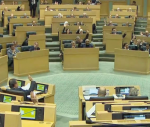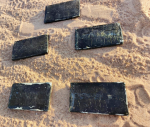You are here
The dignity of Palestinians and decent nations of the world
Jan 27,2018 - Last updated at Jan 28,2018
Twelve years ago when my eldest son was about five, we were invited to the birthday party of one of his classmates. We were all new at the prep school and still meeting other parents and building friendships. We arrived at a very lavish home nestled in Windsor Great Park and joined the tens of children, and their parents, who were running around screaming and jumping up and down on a huge trampoline. An apparently endless supply of presents, which were brought in by the parents, was piling up at the entrance of the home.
A week or so later I bumped into the mother of the birthday child at school drop off. Within the niceties of these types of mum-to-mum conversations we reverted to the birthday party and how much fun the children had and she let slip something I hadn’t forgotten since. After the party, her son was invited to unwrap his presents and then instructed to chose only five to keep. All the other presents went to a synagogue in the town of Reading.
She said that it was an obligation in her religion, Judaism, to give what she referred to as Tzedakah, as a spontaneous act of goodwill and generosity. In her home, there is a donation box where her children were required to share from their pocket money or financial gifts from relatives or friends and which was also donated to Jewish causes. Her husband visits Israel every year to recruit young Jewish graduates to international positions in finance globally.
Of course, charity is not a uniquely Jewish or religious thing and is in fact synonymous with Sadaka and Zakat in Islam, charity in Christianity and I believe is present in all other spiritual religions around the world. It also informs the human rights framework that guides international development and charity organisations globally.
What she and her family were showcasing, in my opinion, was the political, financial and logistical commitment to Israel and the welfare and prosperity of her people, even though she was American born and grown.
I was reminded of this Jewish family when I heard this week the Director of UNRWA in Jordan Roger Davies recounting a touching story about a Palestinian refugee child in Jordan who last week asked guests at his birthday party to donate the value of their presents to UNRWA as part of his contribution to the global fundraising drive kicked off by the relief agency under the campaign title "Dignity is Priceless".
The challenge facing UNRWA, which has been working to provide support to Palestinian refugees for decades, as it is forced to make a strategic turnaround to ensure its sustainability, will not be only in tackling the logistics and strategies required for raising a set amount as an end in itself. By embarking on this path, UNRWA will need to consider several extra challenges and answer several questions: How to inspire diaspora Palestinians into taking a clear and significant role in supporting less privileged Palestinians and especially children in education, how to advocate with host states to recognise that if the UNRWA school system fails due to lack of funding, these young children will become the responsibility of the states hosting them, and most importantly in my mind, how to impress on the good nations of the world who are members of the league of nations that education for Palestinian children is a right that is guaranteed by international covenants and therefore can not be used as a political bartering chip.
And in considering these questions it amazes me that the responsibility for initiating these conversations appears to have fallen only into the laps of the UNRWA strategists without a credible murmur from diaspora Palestinians, host states or the United Nations as the harbinger of safeguarding the dignity — and humanity — of the global world regardless of the politics.
There seems to be an eerie silence and apathy that is truly inexplicable considering the gravity of the situation. And I think it highlights the impact of the years of de-prioritisation of the Palestinian cause in the Arab mind and political agenda over the past couple of decades.
We allowed the Palestinian issue to drop off the global agenda of “good” nations and states and the national Arab and Muslim states agendas when we allowed the affairs of our refugees to fall off the priorities in the Palestinian agenda. Diaspora Palestinians have been hiding, since the Oslo Accords, behind the dictum and proposition that the decision making responsibility for the Palestinians is only in the hands of the Palestinian authority (in which I include Hamas despite the public political wrangling) and the Palestinians living under Israeli occupation “inside”.
In some ways, the US administration’s decision to shed its “honest mediator” cloak and openly take sides with Israel against the Palestinians living under occupation may in fact become the trigger to an awakening to the injustice that is being heaped on the Palestinian people.
Which brings me back to the American Jewish lady teaching her children commitment to the cause and the Palestinian refugee child who realised that every Penny/Cent/Qirsh counts financially and is a statement politically.
The “Dignity is Priceless” campaign provides an opportunity for us to bring back respect and compassion to the Palestinian cause. It provides an opportunity for renewed energy and commitment to undo the injustice or at minimum counter its impact on the innocent children whose future is going to be lost if UNRWA falls apart. Palestinians in the Diaspora must wake up to their responsibility to give and share, host states must openly discuss the impact that this loss of funding to UNRWA will mean to their own national budgets and school enrollment capacities, and the good nations and states of the global world must re-state and adopt — politically, financially, administratively and logistically — the Palestinian children’s right to education and care through UNRWA. It is time that we all paid the price for Palestinian dignity.













